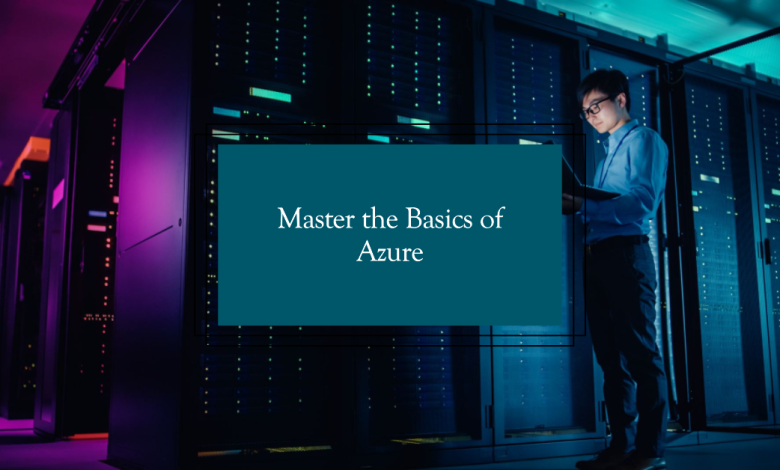Demystifying Azure Fundamentals: A Comprehensive Guide

Microsoft Azure, commonly known as Azure, is a powerful cloud computing platform that has been revolutionizing the way businesses operate in the digital age. Azure Fundamentals serve as the cornerstone for anyone looking to embark on a journey into the world of cloud computing. In this comprehensive guide, we will delve deep into Azure Fundamentals, exploring its key concepts, benefits, and practical applications.
Understanding the Basics
What is Azure?
Azure is Microsoft’s cloud computing platform that offers a wide range of cloud services, including computing, storage, databases, networking, analytics, and more. It allows businesses to build, deploy, and manage applications and services through Microsoft-managed data centers worldwide.
Why Azure Fundamentals?
Azure Fundamentals is the entry-level certification that provides individuals with a foundational understanding of Azure services and their applications. This certification acts as a stepping stone for more advanced Azure certifications and is essential for anyone looking to build a career in cloud computing.
The Benefits of Azure Fundamentals
Scalability and Flexibility
One of the core advantages of Azure Fundamentals is its scalability. Azure allows businesses to scale their resources up or down based on demand, ensuring they only pay for what they use. This flexibility is particularly beneficial for startups and enterprises alike.
Cost-Efficiency
Azure Fundamentals also helps organizations optimize their IT spending. By moving to the cloud, businesses can reduce the costs associated with maintaining physical hardware and data centers. Azure’s pay-as-you-go pricing model further enhances cost-efficiency.
Key Concepts in Azure Fundamentals
Azure Services
Azure offers a vast array of services categorized into various domains, including:
Compute: Azure Virtual Machines (VMs), Azure App Service, and Azure Functions.
Storage: Azure Blob Storage, Azure Files, and Azure Table Storage.
Networking: Azure Virtual Network, Azure ExpressRoute, and Azure Load Balancer.
Databases: Azure SQL Database, Azure Cosmos DB, and Azure Redis Cache.
Analytics: Azure Data Factory, Azure Databricks, and Azure HDInsight.
Regions and Availability Zones
Azure operates in multiple regions around the world, with each region consisting of one or more data centers. Availability Zones within regions provide redundancy and high availability for applications and services.
Getting Started with Azure Fundamentals
Creating an Azure Account
To begin your journey into Azure Fundamentals, you’ll need to create an Azure account. You can sign up for a free trial or a pay-as-you-go subscription, depending on your needs.
Azure Portal
Once you have an Azure account, you can access the Azure Portal, a web-based interface that allows you to manage and monitor your Azure resources. The portal provides a user-friendly experience for both beginners and experienced users.
Deploying Resources on Azure
Virtual Machines
Azure Virtual Machines (VMs) are one of the most commonly used services in Azure. They provide on-demand scalable computing resources, making them suitable for various workloads, from web hosting to machine learning.
Web Apps
Azure App Service enables you to build, host, and scale web applications and APIs quickly. It supports multiple programming languages and integrates seamlessly with Azure DevOps for continuous deployment.
Securing Your Azure Resources
Azure Security Center
Security is a top priority in the cloud. Azure Security Center helps you protect your Azure resources by providing advanced threat protection across hybrid cloud workloads.
Identity and Access Management (IAM)
Azure Identity and Access Management (IAM) allows you to control who has access to your Azure resources. You can grant permissions and assign roles to users, ensuring that only authorized personnel can make changes.
Monitoring and Optimization
Azure Monitor
Azure Monitor provides a comprehensive solution for collecting, analyzing, and acting on telemetry data from Azure and on-premises environments. It helps you gain insights into the performance and health of your applications and infrastructure.
Cost Management
Effective cost management is crucial when using Azure. Azure Cost Management and Billing tools allow you to monitor and optimize your spending by setting budgets, analyzing cost trends, and identifying cost-saving opportunities.
Conclusion
Azure Fundamentals is the gateway to harnessing the full potential of Microsoft Azure. Understanding its basic concepts, benefits, and practical applications can empower individuals and businesses to leverage the cloud’s capabilities effectively. Whether you’re a beginner looking to start your cloud journey or an experienced professional aiming to expand your skillset, Azure Fundamentals is a crucial stepping stone in today’s cloud-centric world. Embrace Azure Fundamentals, and unlock a world of possibilities in the realm of cloud computing. Start your Azure journey today!
also know about Predictive Analytics



